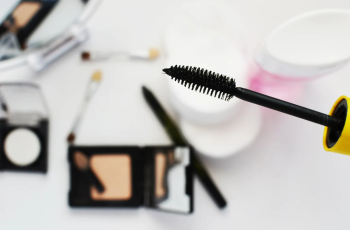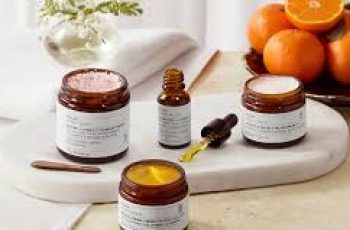
What Is Marula Oil and What Are Its Skincare Benefits?
If you haven’t heard of Marula oil yet, don’t worry. It’s a new and exciting skincare ingredient that’s becoming more popular every day.
People are starting to use it in their skin and hair routines. And there’s a good reason for that.
This natural oil is packed with nutrients and has many beauty benefits. Stick around to learn why Marula oil might become your favorite skincare product.
Where Does Marula Oil Come From?
Marula oil comes from the fruit of the Marula tree, which is native to parts of southern Africa.
The oil is extracted from either the soft kernels inside the Marula fruit or the nut inside the hard shell.
It has been used for centuries in African cultures for its healing and moisturizing properties.
Traditionally, it was applied to the skin, hair, and even used in cooking.
Today, Marula oil is found in face oils, serums, body moisturizers, and hair products.
It’s also sometimes used as a soothing massage oil due to its smooth texture.
Though it can be used on its own, Marula oil is often blended with other natural oils or ingredients in skincare products.
This combination enhances its effectiveness and gives additional benefits.
Is Marula Oil Safe for All Skin Types?
Marula oil is considered safe for most skin types, but it may not work for everyone.
This oil is rich and moisturizing, but it is also comedogenic.
A comedogenic oil can clog pores, which may cause breakouts, blackheads, or acne.
If your skin is oily, acne-prone, or sensitive to clogged pores, you may want to use it with caution.
You can patch test a small amount on your jawline or cheek before applying it all over your face.
If you don’t notice any irritation or breakouts within 24-48 hours, it’s likely safe for your skin.
Those with dry or mature skin often see the best results from Marula oil.
Its richness helps restore hydration and leaves the skin feeling soft and smooth.
How to Use Marula Oil in Your Skincare Routine
Adding Marula oil to your skincare routine is simple and effective.
You’ll often find it in facial oils, hydrating serums, or nourishing creams.
The best time to use it is after cleansing your skin to remove dirt, oil, and makeup.
If you exfoliate once or twice a week using a gentle scrub or an AHA/BHA acid like glycolic or salicylic, your skin will absorb it even better.
After cleansing and toning, apply your usual serum, then add a few drops of Marula oil.
Gently pat it into your skin using clean fingertips, especially on dry areas.
You can also mix a drop or two into your daily moisturizer for an extra boost of hydration.
Marula oil is best applied as the final step in your nighttime routine to seal in moisture.
Since it’s lightweight and non-greasy, it won’t feel heavy even if you have combination skin.
What Are the Skincare Benefits of Marula Oil?
Marula oil is full of antioxidants, fatty acids, and skin-loving vitamins.
It is a light oil, so it absorbs quickly without leaving a greasy film.
Here are some of the key benefits of using Marula oil on your skin:
Deeply hydrates and moisturizes dry, tired skin
Absorbs quickly and doesn’t feel sticky or oily
Rich in vitamin C and E, which fight free radicals
Protects the skin against sun damage and pollution
Helps fade dark spots and evens out skin tone
Restores the skin’s protective moisture barrier
Reduces the appearance of fine lines and wrinkles
Boosts skin elasticity and supports collagen production
Calms irritated or red skin with its anti-inflammatory properties
Works well on face, body, and even hair
Marula oil acts as a shield against harmful environmental factors.
It protects your skin from sun exposure, pollution, and extreme weather, all of which can speed up aging.
Its high level of fatty acids, such as oleic and linoleic acid, helps the skin stay soft and supple.
These fats also help repair damaged skin and reduce dryness or flakiness.
Can Marula Oil Be Used Around the Eyes?
Yes, Marula oil is gentle enough to be used under the eyes.
The skin under and around the eyes is thinner and more delicate, so a light oil like Marula is ideal.
Its vitamin E content helps smooth fine lines and prevent new ones from forming.
Vitamin C brightens the skin and helps reduce the appearance of dark circles.
To apply it, use your ring finger, as it applies the least pressure to the sensitive eye area.
Add one or two drops to your fingertip and gently pat around the under-eye and outer corners.
You can also mix it with a hyaluronic acid serum to boost hydration even more.
Used regularly, Marula oil can reduce puffiness and make tired eyes look refreshed.
Does Marula Oil Help With Wrinkles?
Yes, Marula oil is a powerful anti-aging ingredient.
It’s packed with antioxidants that fight free radicals—the unstable molecules that damage skin cells and cause signs of aging.
Free radicals come from sunlight, pollution, and daily stress.
Over time, they break down collagen and elastin, the proteins that keep skin firm and elastic.
By using Marula oil regularly, you can help slow down this damage.
Its moisturizing qualities also plump the skin, making fine lines and wrinkles less visible.
Dry skin often looks older because it highlights every line and crease.
Keeping your skin well-hydrated with Marula oil makes it look smoother and more youthful.
You can also pair Marula oil with exfoliating acids like glycolic acid or salicylic acid.
These ingredients help remove dead skin and allow the oil to work more effectively.
This combo leaves your skin brighter, clearer, and healthier-looking.
Can Marula Oil Be Used on Hair?
Yes, Marula oil works wonders on hair too.
Just like it nourishes the skin, it deeply conditions and strengthens dry or damaged hair.
It helps tame frizz, adds shine, and smooths flyaways without weighing hair down.
You can apply a few drops to damp hair before styling, or use it as a finishing oil on dry hair.
It’s also great as a scalp treatment. Massage a small amount into your scalp to fight dryness and flakiness.
Many shampoos, conditioners, and leave-in treatments now include Marula oil for this reason.
What Makes Marula Oil So Special?
Marula oil has become a favorite among dermatologists and skincare lovers for a reason.
It offers a rare mix of light texture and deep hydration.
Its antioxidant content protects the skin from aging and environmental damage.
Because it absorbs so quickly, it’s a great option for both morning and evening routines.
It doesn’t just sit on your skin—it goes deep to do real work.
You’ll often see it in luxury skincare products, but it’s also becoming more affordable and widely available.
Some people even call it “liquid gold” because of how versatile and effective it is.
How to Get the Most Out of Marula Oil
To make the most of Marula oil, apply it on clean, slightly damp skin to lock in moisture.
Use it at night so it can work while your body rests and repairs itself.
Nighttime is when your skin does most of its healing, so it’s a perfect time to use a treatment oil.
You don’t need a lot—just 2 to 3 drops is usually enough for the whole face.
If you use it in the morning, always apply sunscreen afterward, especially if your skin is sensitive.
With regular use, your skin will start to look healthier, brighter, and more hydrated.
Final Thoughts on Marula Oil
Marula oil may be the skincare ingredient your routine has been missing.
It hydrates, protects, and helps fight signs of aging—all in one product.
From fading dark spots to smoothing wrinkles and softening hair, its list of benefits is long.
If your skin is dry, dull, or losing elasticity, this oil might be the solution.
Used consistently, Marula oil can bring noticeable changes in how your skin looks and feels.
It’s easy to use, widely available, and suitable for most people.
Give it a try—and you might just fall in love with this powerhouse oil too.


